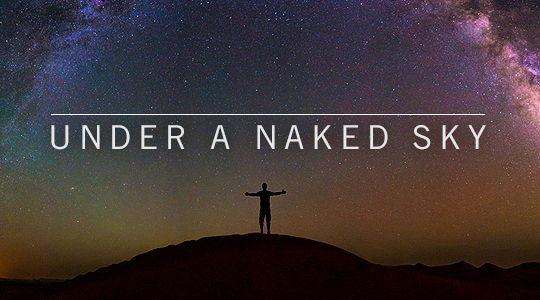Other Influences - Conscience
By Scott Hughes

“We have not only forgotten the conscience, we have forgotten the communion to which it has been called.”1
People’s conscience used to be imparted and shaped through hierarchical arrangements. A brief history lesson, albeit oversimplified, may prove informative. Before the Copernican revolution, most people simply thought hierarchically. God was at the top, followed by the king or pope (depending on time and culture), then the higher classes, and on down power and status flowed. One of the dramatic statements of the Protestant Reformation was Marin Luther’s declaration (so tradition has it), “Here I stand.” Luther stood by his interpretation of the Scripture. He said:
Unless I am convinced by Scripture and plain reason - I do not accept the authority of the popes and councils, for they have contradicted each other - strongemmy conscienceemstrong is captive to the Word of God. I cannot and I will not recant anything for to go against strongemconscienceemstrong is neither right nor safe emphasis added.supa hrefftn2 nameftnref2 title2asup
Luther also opposed the traditions of the Roman Catholic Church on the issue of indulgences. His stance helped to shift the weight of authority from the hierarchy of church and government to the individual conscience.
This continued movement has weakened the influence of government and church in the formation of conscience in the Western world. Even still, reformers such as Calvin stressed the role of government and church in the formation of an individual’s conscience. After all, the conscience (for Calvin) was depraved and required education in virtues and vices.
The philosopher Rousseau furthered the decline by changing the place of sin from within individuals to society. Now individuals need freedom from the government as well in order to truly be “free.” As C. C. Pecknold summarizes in his book, Christianity and Politics, “Once the individual conscience was detached from community…it would not be long before conscience could be understood simply as the ‘desires’ and instincts…’”3 Not a big jump then into our current culture where democracy isn’t just a political system, but a worldview shaping how we view our conscience – free from all perceived institutional, hierarchical, and authoritarian constraints. This “freedom” results in a situation where individuals are left to guidance from mere and ever-fluctuating desires. Without external guidance, we are left with many questions. “How do we determine virtues and vices? What guides our moral compass? Why should we look beyond our own interests to the interest of the common good?”
There is both a positive and negative aspect to this current reality. The lack of influence from government and church means we have little external guidance except through the divergent and fluctuating values of our culture. The positive aspect to this reality is that individuals have a more vital role in the formation of their conscience. As one author observes the difficulty, “The quest for a healthy personal identity too often dissolves in a conflict in array of contradictory and confusing messages about the self.”4
Though we are free to navigate and negotiate meaning, we must ask, “Where do we look for guidance?”
Reflection Questions for Individuals:
- Was the history lesson insightful? Does it change the way you think about your conscience? (A. Your conscience is not free from baggage, harmful, destructive influences. B. That guidance is necessary? C. That you have an important role in determining what you allow to influence the shape of your conscience?)
- Should your conscience always be followed? What is the difference between your desires and your conscience? Is there a difference?
Reflection Questions for Church leaders:
- What role should the church play in shaping people’s consciences?
- How do our vows at baptism and/or the liturgy from Communion shape our conscience?
1 Pecknold, C. C. Christianity and Politics: A Brief Guide to the History. (Cascade Books, 2010), 157.
